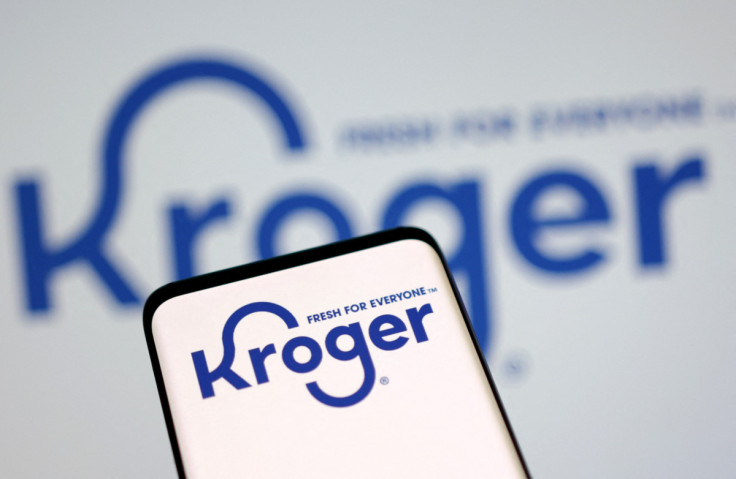U.S. Grocer Kroger Carts Away Albertsons For $25 Billion But Faces Antitrust Test

Kroger Co snapped up Albertsons Cos Inc in a $25 billion deal on Friday, creating a U.S. grocery behemoth to better compete with leader Walmart Inc on prices while bracing for antitrust scrutiny.
The mega merger between the No. 1 and 2 standalone grocers in the United States will bring under one roof nearly 5,000 stores that include banners such as Albertsons' Safeway and Kroger-owned Ralphs and Fred Meyer.
The deal could, however, stifle competition and lead to higher prices for American shoppers already grappling with this year's surge in inflation, according to some analysts.
To help ease those concerns, the companies have charted plans to divest some stores and Albertsons is ready to spin off a standalone unit to its shareholders immediately before the Kroger deal closes. The new public company is estimated to comprise as many as 375 stores.
"We have a clear path to achieve regulatory approval with divestitures," company executives reassured investors on a conference call on Friday, adding that it was still too early to narrow down which markets the restructuring would occur in.
Neil Saunders, managing director of GlobalData Retail, said "these (concerns) are mostly local issues where a merger produces a very high market share in certain areas. From a broader national perspective, a combined Kroger and Albertsons does not pose any major threat to the competitive dynamics of the market."
"Scale is necessary to deliver the prices and investments that consumers demand."
BATTLE FOR LOWEST PRICES
With a customer base of 85 million households and 66 distribution centers, Kroger and Albertsons would together have an edge over negotiations on product prices with suppliers, including consumer goods companies, at a time when prices of groceries and essentials are soaring in the country.
Kroger said it expects to reinvest about half a billion dollars of cost savings from deal synergies to reduce prices for customers. An incremental $1.3 billion will also be invested into Albertsons.
Market leader Walmart has been doubling down on its own grocery business and has traditionally used its scale to demand the lowest possible prices from food and beverage suppliers, leaving rivals at a disadvantage in price negotiations.
"The merger will accelerate our position as a more compelling alternative to larger and non-union competitors," Kroger Chief Executive Officer Rodney McMullen said.
Kroger will pay $34.10 for each Albertsons share, representing a premium of about 33% to the stock's closing price on Wednesday, a day before media reports emerged of a deal between the two.
Shares of Albertsons was down about 6% in morning trading, after closing up 11% on Thursday, while Kroger's stock was down about 3%. Earlier in the day, Ahold Delhaize shares also surged on news of a potential deal, with J.P. Morgan analysts saying that a deal would underpin the Dutch supermarket major's own M&A appeal. Ohio-based Kroger plans to fund the deal using a combination of cash on hand and proceeds from $17.4 billion in debt financing in place from Citi and Wells Fargo. It would also have to pay Albertsons $600 million if the deal is terminated.
After the deal close, which is expected in early 2024, Kroger CEO McMullen will continue to serve as the head of the combined company.
© Copyright Thomson Reuters 2024. All rights reserved.











